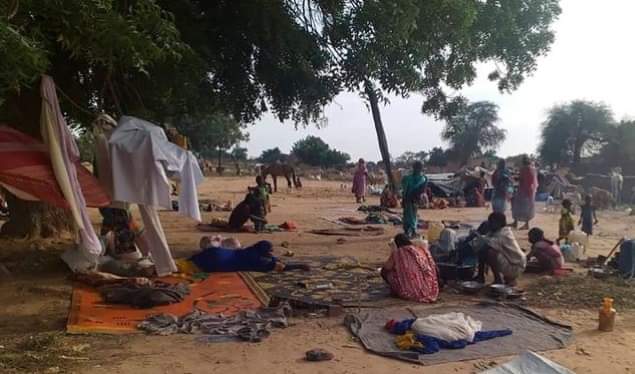Health officials in Sudan are grappling with an escalating cholera outbreak as the country continues to face the dual crisis of conflict and a deteriorating public health infrastructure. The cholera outbreak, officially declared by the Ministry of Health on August 12, has spread rapidly, particularly in eastern Sudan. Recent reports indicate a staggering 40% increase in cases between September 26 and early October, heightening concerns about the country’s ability to contain the disease.
The outbreak is primarily concentrated in Kassala, a state in eastern Sudan severely impacted by recent heavy rainfalls and floods. These natural disasters have worsened living conditions, creating ideal environments for the waterborne disease to thrive.
Millions of people displaced by the ongoing conflict between the Sudanese military and the Rapid Support Forces (RSF) are now sheltering in overcrowded, unsanitary conditions, further accelerating the spread of cholera.
Cholera is a highly contagious disease that causes severe diarrhea, leading to life-threatening dehydration if untreated. According to the World Health Organization (WHO), it is transmitted through the ingestion of contaminated food or water, a common scenario in areas experiencing poor sanitation and limited access to clean drinking water.
UNICEF, in collaboration with the Sudanese Ministry of Health and WHO, has been actively working to contain the outbreak. Last month, these organizations launched a second round of the oral cholera vaccination campaign in the affected regions. Kassala, which has seen the highest number of cases, has been a focal point for these efforts. On September 9, UNICEF delivered 404,000 doses of the cholera vaccine to Sudan as part of an emergency intervention aimed at preventing further spread.
Despite these efforts, the situation remains dire. The combination of flooding, conflict, and displaced populations has overwhelmed Sudan’s already fragile healthcare system, making it increasingly difficult for medical teams to reach affected communities. The ongoing violence has hampered the delivery of medical supplies and the deployment of health workers to remote areas, leaving many without access to timely treatment.
The cholera outbreak in Sudan underscores the severe humanitarian challenges the country faces as it battles both war and disease. According to health experts, the conflict has exacerbated vulnerabilities, making it more difficult for health authorities to implement effective disease control measures. The breakdown of water and sanitation systems, coupled with food insecurity, has created a perfect storm for cholera to spread unchecked.
As health officials race against time to curb the outbreak, international humanitarian agencies are calling for urgent support. “We are working tirelessly to vaccinate as many people as possible, but without immediate global assistance, the situation could worsen,” a UNICEF official in Kassala warned.
For the millions of Sudanese caught in the crossfire of both war and disease, the need for urgent intervention has never been more critical. The hope lies in scaling up vaccination efforts, improving sanitation, and securing safe access to healthcare for those at greatest risk, to prevent an already devastating crisis from spiraling further out of control.




